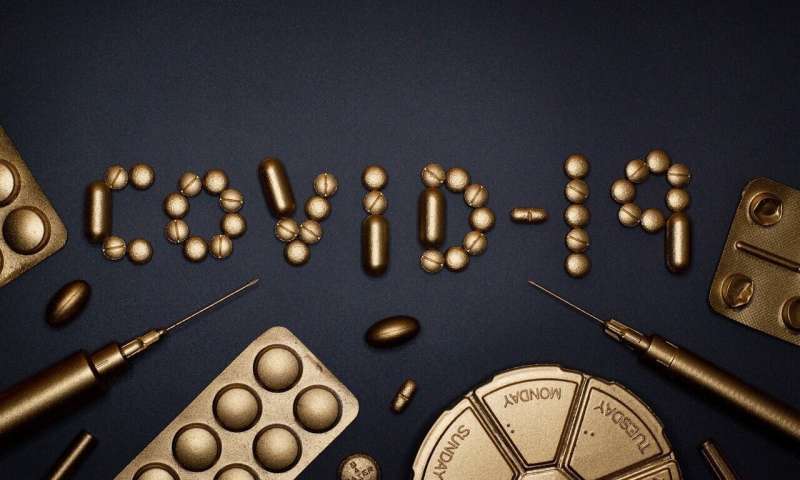
Over ten million people were placed under fresh COVID-19 restrictions and a curfew in the Thai capital Monday, as the kingdom battles a surge of cases worsened by the highly infectious Alpha and Delta variants.
Thailand has so far recorded more than 345,000 cases and 2,791 deaths—with the bulk of them coming in this latest wave that kicked off in April.
First detected in clubs frequented by the Thai elite and politicians at an upscale Bangkok nightlife district, the surge in infections has been exacerbated by a slow vaccine rollout and limited testing capacity.
In addition to the capital, nine other provinces that have seen steady upticks in infections saw more restrictions bite.
Police checkpoints sprung up across Bangkok in the early hours of Monday as a curfew from 9 pm to 4 am came into force, with police wearing masks and facial shields stopping cars in the centre of the capital.
Residents are barred from gathering in groups of more than five people, while public transport networks will shut from 9 pm.
Supermarkets, restaurants, banks, pharmacies and electronics stores within malls will be able to stay open but other shops have shuttered.
‘So slow’
The government of Prayut Chan-O-Cha has come under vociferous criticism for its handling of the pandemic—from its management and procurement of vaccines to ad hoc enforcement of rules to prevent the spread of COVID—and anger is high among Thais at the new measures.
“The government decided to impose a lockdown but they don’t have compensatory measures for the people whatsoever,” said restaurant owner Arphawan Larangam.
Some say the movement restrictions should have come sooner before the brunt of the new highly contagious variants were felt among the population.
“The government does everything so slow. If they really want to impose a lockdown, they should’ve done it a lot sooner,” said Jit, a university student.
The virus has hit poor communities the hardest, especially those living in Bangkok’s slums, where social distancing is not possible.
Long lines of people waited at two free testing clinics to get swabbed last week, with local media showing people camped under a tollway in Khlong Toei district—where Bangkok’s largest slum is located—as they waited for negative results before going home to their families.
Source: Read Full Article